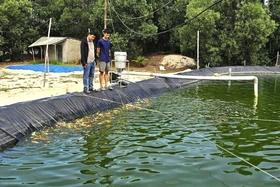w43hu7hOTOG7pjrhu5I5OeG6uEs2QUBhOuG7qEvDjOG7tcOh4buSLOG7tkxBOEBM4bumOOG7qOG7kmHhu6g5TOG7tOG7kuG6pS444buS4bukOuG7qEzhu6YuLMWoQGFALiw5TOG7tC44TOG7pi7hu5I6TGE44buSxahALOG7tkzhu7Q4LjtMceG7ki45w40v4bu4TsOMw402TOG7pjrhu5I5OeG6uEs24buV4buo4buSxahLw4xqQDjhu6jhu6ZhLjhMLuG7tEzhu7XDoeG7kizhu7ZMQThATGrhu6g24buSOGE74buoLGFMLuG7tEzhu5csxajDoTlhOOG6qUzhu5IsxahMQTjhu5LFqOG7qExz4bu2w6Hhuqnhu6gsTEE4w6EuLOG7tkxw4bu4LuG7kkxhLjrFqEzhu7XDoeG7kizhu7ZMQThATHPhu6jhuqc5NuG7kjbhu6g4TOG7kuG7pC7DoWFMYeG7uOG7qEw2OC45NuG7qOG7pmE5TC7hu7RM4bumLuG7kjpMYTjhu5LFqEAs4bu2TOG7pOG7qGHhuqfhu6jhu6gsTGHhu7jhu6hMYeG6py5MOUDFqOG7qDlGw40vNsOMw402TOG7pjrhu5I5OeG6uEs24buJLsWo4bqpS8OMw405YTguLOG7tsOMxKkuw6E6xahM4bqpLsOhTDY64buo4buSOeG7qEw2OC7huqVAxajhu6hMQCw5QOG7tuG7uGE5TEAsYS5MYeG7uOG7qEw4Ljrhu6hMLuG7tEzhu6gs4buoOOG7tuG6qUxALEzFqDhA4bqlQCzhu7ZMYeG7uOG7qEw5LuG7pkAuLeG7qOG7pi4sLjtA4bumTMWo4buo4bql4buoOi42O+G7qCxhTC7hu7RM4bukLmHhu7hMYeG7uOG7qEzhu6Yuw6EsYTjhuqlMQCxM4bu24buoLOG7qDjhu5I6TOG7kizFqEzhu7XDoeG7kizhu7ZMQThATEAsTDbhu5I4YUDhu6bDoTrhu5I44buETOG7qDk24buo4bumQOG7kjo64bqpTEAsTDjhu6jhu5I6QHpALOG7tkxh4bu44buoTOG7pi47O0BhO+G7qCxhTGEuTEvhu4nDoUA6xahALOG7tkzhu7XDoeG7kizhu7ZMQThATEAsYS5MYeG7uOG7qEzhu6gs4buoOOG7tuG6qUzhu7jDoeG7pEwu4bu0TGHhu7jhu6hMxKnhu6gsYTjhu5I6TDjhu6jhu7ZALixM4buk4bqpTE9Nw5NNS+G7gMONLzlhOC4s4bu2w4zDjS82w4zDjTZM4bumOuG7kjk54bq4Szbhu4kuxajhuqlLw4xB4bu44buoTE7Dk2Hhu7hMc+G7kmFALizhu5I6TOG7s+G7kjhh4bqpTMSpLizhu7Y44buoOTlM4bu44buSOUw54buoYUxh4bu44buoTOG7ti7hu5I6TOG7tC44TOG6pEDhu6hhLOG7kjtMYS5M4buk4buo4bumLjvhu6hM4buSTMWo4buo4bql4buoOi424buoxajhu4RM4bu4QOG7tuG7uC1ALOG7pi474buoTOG7pi7DoSxhOOG6qUzhu6ThuqlMT03DkuG7jEZMQS5M4buS4bum4bu4QOG7qOG6peG7qExh4bu4QDlM4bu2LuG7kjrhu4RMYeG7uOG7qEzFqOG7qOG6peG7qDouNjvhu6gsYUwu4bu0TOG7pi44OOG7qDk2LizFqEAs4bu2TOG7qCzhu6g44bu24bqpTEA5TC7hu7RMOWE44buSYeG7qOG7tkDhu6ZMQDs2Ljhh4buSLOG7puG7qOG7hEzhu5I5TOG7qCzhu6g44bu24bqpTEA5TOG7kkzhu6Y4w6Hhu6ZA4buSOkzhu7Quw6Esxajhu5JhQC4sTOG7tC44TDku4bumQC4t4buo4bumLiwuO0Dhu6ZMxajhu6jhuqXhu6g6LjY74buoLGFGw40vNsOMw402TOG7pjrhu5I5OeG6uEs24buJLsWo4bqpS8OMQeG7uEA5TEA5TOG7pi4s4bumOOG7qGHhu6g64bqpTC7DoWE6QCzhu6jFqExALEzhu7fhu6g5LjrDoWFALixMcy5GTOG7jOG7jC1z4bu1L0HhuqZMLuG7tExPTU9NTOG7pOG6qUxh4bu44buoTOG7sy46QGHhu6TDoTguTC4sTGHhu7jhu6hMLjhA4buoLGHhu5JhQC4sTC7hu7RMYeG7uOG7qExz4buSYUAuLOG7kjpMbCzhu6g44bu24bqpTGrhu6jhuqXhu6g6LjY74buoLGFM4bu5YTjhu5Jh4buo4bu24bqpTGEuTE9Nw5NN4buETOG6p0Bh4bu4TOG7kkzhuqVAOUAuLExhLuG6p+G7kjjFqDlMT03DkuG7jEZMQeG7uOG7qEw44buoOS46w6FhQC4sTC7hu7RMYeG7uOG7qExOw5Vh4bu4TOG7szgu4bqlQCzhu6ZA4buSOkzhu7Phu5I4YeG6qUzEqS4s4bu2OOG7qDk5TOG7pi4sYUAsw6Hhu6g5TGEuTDY4QC44QGFAeuG7qExh4bu44buoTOG7qCzhu6g44bu24bqpTEAsxajDoTlhOOG6qUzhu5I5TC4s4buoTC7hu7RMYeG7uOG7qEzhu6Q44buo4buSP2Hhu7g4LsOh4bu24bu4TMWo4buo4bql4buoOi42O+G7qCxhTDnhu6jhu6ZhLjg54buETOG6p0Bh4bu4TGHhu7jhu6hMxajhu6hh4buoODtALOG7kmFALixMYS5MS+G7icOhQDrFqEzhu7XDoeG7kizhu7ZMQThATEAsYS5MYeG7uOG7qEzhu6gs4buoOOG7tuG6qUzhu7jDoeG7pEwu4bu0TGHhu7jhu6hMxKnhu6gsYTjhu5I6TDjhu6jhu7ZALixM4buk4bqpTE9Nw5NNRkvDjS82w4zDjTZM4bumOuG7kjk54bq4Szbhu4kuxajhuqlLw4x0LEzhu6HDoTrhuqlMT+G7juG7hExPTU/Dk+G7hExh4bu44buoTOG7szhAO+G7qExyQCxAOWHhu6g4TEA5OcOh4buoxahMauG7qOG7pkA5QC4sTHMuRkzDlOG7kMOTL+G7tWotQUHhu7ZM4buSNjY4LuG6pUAs4bu2TGHhu7jhu6hMc+G7kmFALizhu5I6TGws4buoOOG7tuG6qUxy4buSOWHhu6g4TOG7szrhu5IsTOG7tC44TGHhu7jhu6hMNuG7qDhALsWoTE9NT04tT03Dk03hu4RM4bqnQGHhu7hM4buSTOG6pUA5QC4sTGEuTE9N4buMTUZMZeG7puG7pi44xahALOG7tjrhuqnhu4RMYeG7uOG7qEzhu5ku4bql4buoOCw74buoLGFM4bu44buSOUzFqEA44buo4bumYeG7qMWoTGHhu7jhu5JhTOG7qCzhu6g44bu24bqpTDY64buS4bqpOUzhu5JM4bumOMOh4bumQOG7kjpM4buSLMWoTOG7qDk54buoLGFA4buSOkw4Ljrhu6hMQCxMOS7hu6ZALi3hu6jhu6YuLC47QOG7pkzFqOG7qOG6peG7qDouNjvhu6gsYUZMbCzhu6g44bu24bqpTMWo4buo4bql4buoOi42O+G7qCxhTDvDoTlhTOG7pOG7qEw2OC7hu5Lhu6ZhQOG6peG7qOG7hEw6Lizhu7YtYeG7qDg74buETOG7kizFqEzhu6jhu7Thu7Thu6jhu6ZhQOG6peG7qExhLkzhu6gsOcOhOOG7qEws4buSYUAuLOG7kjpM4buoLOG7qDjhu7bhuqlMOeG7qOG7psOhOEBh4bqp4buETDY4LjsuYeG7qEws4buSYUAuLOG7kjpMxajhu6jhuqXhu6g6LjY74buoLGHhu4RM4bukw6FAOsWoTOG7kixMQCzFqOG7qDbhu6gsxajhu6gsYUzhu5IsxahMOeG7qDrhu7QtOOG7qDpA4buSLGFM4buo4bumLiwuO+G6qeG7hEzhu5IsxahMQDs2OC7huqXhu6hMNuG7qC42OuG7qOKAmTlMOkDhuqXhu6g5RkxsOTbhu6jhu6ZA4buSOjrhuqnhu4RMYeG7uOG7qEzhu5ku4bql4buoOCw74buoLGFM4bu44buSOUw54buoYUzhu7Yu4buSOjlM4bu0LjhMNjrhu5IsLEAs4bu2TOG7qOG7kuG7puG7uEzhu6gs4buoOOG7tuG6qUw5w6Hhu6QtOeG7qOG7pmEuOOG7hExALOG7pjrDocWoQCzhu7ZMYeG7uOG7qEwuQDpM4buSLMWoTOG7tuG7kjlMOeG7qOG7pmEuOOG7hExh4bu44buoTOG7pi7hu5I6TDnhu6jhu6ZhLjjhu4RMYeG7uOG7qEws4buo4bqnTOG7kizFqEw44buoLOG7qOG6p+G7kuG7pDrhu6hM4buoLOG7qDjhu7bhuqlMOeG7qOG7pmEuOOG7hEzhu5IsxahMYeG7uOG7qEzhu6g64buo4bumYThA4bumQGHhuqlMOeG7qOG7pmEuOEZM4buXLExh4bu4QDlMOOG7qOG7tuG7kjjFqOG7hExh4bu44buoTOG7pi7hu5I6TDnhu6jhu6ZhLjhMQDlMQMWo4buoLGFA4bu0QOG7qMWo4buGTMWow6E4QCzhu7ZMYeG7uOG7qEw24buoOEAuxahMT01PTi1PTcOTTeG7hExAYUxAOUzhu6jhuq024buo4bumYeG7qMWoTGEuTEAs4bumOOG7qOG7kjnhu6hMQDs2LjhhOUzhu7Y44buSxajDoeG7kjo64bqpTOG7kizFqEw44buo4buS4bum4bu4TOG7kuG7pC7DoWFMw5XDk0w7QDo6QC4sTGEuLDlM4buk4bqpTE9Nw5NNRsONLzbDjMONNkzhu6Y64buSOTnhurhLNuG7iS7FqOG6qUvDjOG7lyxMYeG7uOG7qEw24buoOEAuxahMT03Dk04tT03hu4xN4buETEBhTEA5TOG7qOG6rTbhu6jhu6Zh4buoxahMYS5M4bumLixhQCzDoeG7qExhLkxALOG7pjjhu6jhu5I54buoTOG7kizFqEw44buo4buS4bum4bu4TOG7kkw24buo4buSP0wu4bu0TOG7kuG7pC7DoWFMw5Thu4xMO0A6OkAuLExhLiw5TEAsTE9Nw5Phu4zhu4RMYeG7uOG7qCxM4bu2OOG7ksWow6Hhu5I6OuG6qUzFqOG7qOG7pjjhu6jhu5I54buoTGEuTOG7kuG7pC7DoWFM4buMTUw7QDo6QC4sTGEuLDlM4buk4bqpTE9Nw5Lhu4zhu4RM4bqnQGHhu7hMYeG7uOG7qExAOzYuOGHhu6jFqEzhu6Yu4buSOkzFqOG7qDvhu5IsxahM4bu0LjhMYeG7uOG7qDg74buSOkw2LuG6p+G7qDhMNjrhu5IsYTlMNjrhu5IsLOG7qMWoTGEuTMOhOeG7qExAOzYuOGHhu6jFqEzhu6Yu4buSOkxALExPTcOT4buMTOG7pOG7qEAs4bu2TOG7kuG7pC7DoWFM4buOw5JMO0A6OkAuLExhLiw5TOG7kizFqEzhu7Y44buSxajDoeG7kjo64bqpTMWo4buo4bumOOG7qOG7kjlALOG7tkxhLkzhu5Lhu6Quw6FhTMOTw5JMO0A6OkAuLExhLiw5TOG7pOG6qUxPTcOS4buMRsONLzbDjMONNkzhu6Y64buSOTnhurhLNuG7iS7FqOG6qUvDjGXhu6bhu6YuOMWoQCzhu7ZMYS5MYeG7uOG7qEw44buoNi44YUwu4bu0TGHhu7jhu6hMauG7qDbhu5I4YTvhu6gsYUwu4bu0THRAOkzhu5IsxahMxKku4buSOkwu4bu0TGHhu7jhu6hMckAsQDlhOOG6qUwu4bu0TOG7lyzFqMOhOWE44bqpTOG7kizFqExBOOG7ksWo4buo4buETEBhTEA5TOG7qDlhQDvhu5Jh4buoxahMYeG7uOG7kmFMQCxMT01Pw5Phu4RMYeG7uOG7qEwuw6FhNsOhYUwu4bu0TOG7pi47O+G7qDjhu6ZA4buSOkzhu6Yu4buSOkzhuqdAOjpM4buk4buoTOG7kuG7pC7DoWFM4buMw5VGw5TDlEw7QDo6QC4sTGEuLDnhu4RMLuG7tEzhuqfhu7hA4bum4bu4TMWoLjvhu6g5YUDhu6bhu5I6OuG6qUw2OC7FqMOh4bum4buoxahM4bumLuG7kjpM4bqnQDo6TOG7pOG7qEzhu5Lhu6Quw6FhTMOSw5JG4buOw5RMO0A6OkAuLExhLiw54buETOG7kizFqExAOzYuOGHhu6jFqEzhu6Yu4buSOkzhuqdAOjpM4buk4buoTOG7kuG7pC7DoWFMTsOTRk9MO0A6OkAuLExhLiw5RkzEqeG7kjrhu6bDoTrhu5JhQC4sOUzhu5I6OS5MOeG7uC7huqdMYeG7uOG7kmFMYeG7uOG7qExhLmHhu5I6TOG7pi7hu5I6TOG7pi4sOcOhOzZhQC4sTEAsTE9NT8OTTOG6p0A6Okzhu6Thu6hM4buS4bukLsOhYUzhu4zhu45G4buQ4buMTDtAOjpALixMYS4sOUbDjS82w4zDjTZM4bumOuG7kjk54bq4Szbhu4kuxajhuqlLw4x04bu0TGHhu7hAOeG7hEzhu6Yu4buSOkw5w6E2NjpA4buoxahM4bu0LjhM4buoOuG7qOG7pmE4QOG7pkBh4bqpTDY4LsWow6Hhu6ZhQC4sTOG6p0A6Okzhu6Thu6hM4buS4bukLsOhYUzDkuG7jkZO4buOTDtAOjpALixMYS4sOeG7gkw5w6E2NjpA4buoxahM4bu0LjhM4bu04buoOGFAOkB64buoOEzhu5IsxahM4bum4bu44buoO0Dhu6bhu5I6TDY4LsWow6Hhu6ZhQC4sTOG6p0A6Okzhu6Thu6hM4buS4bukLsOhYUxPRuG7jEw7QDo6QC4sTGEuLDnhu4JMOcOhNjY6QOG7qMWoTOG7tC44TOG7puG7qDvhu6gsYUw2OC7FqMOh4bumYUAuLEzhuqdAOjpM4buk4buoTOG7kuG7pC7DoWFMTkbDlcOSTDtAOjpALixMYS4sOeG7gkw5w6E2NjpA4buoxahM4bu0LjhMLmHhu7jhu6g4TOG7kuG7pmFA4bqlQGFA4buoOUzhuqdAOjpM4buk4buoTOG7kuG7pC7DoWFMw5JG4buMT0w7QDo6QC4sTGEuLDnhu4RM4buSLMWoTOG7qOG6rTYuOGHhu6jFqEzhuqdAOjpM4buk4buoTOG7kuG7pC7DoWFMT0ZNw5NMO0A6OkAuLExhLiw5RsONLzbDjMONNkzhu6Y64buSOTnhurhLNuG7iS7FqOG6qUvDjOG7lyxMYeG7uOG7qEzhu6bDoTg44buoLGFM4bumLixh4buo4bqtYeG7hEzhuqRA4buoYSzhu5I74oCZOUzhu6jhu6YuLC474bqpTEA5TOG7tOG7kuG7pkAs4bu2TDvhu5Is4bqpTMWoQOG7tOG7tEDhu6bDoTphQOG7qDlMOWHhu6g7O0As4bu2TOG7tDguO0zhu7bhu6guNi46QGFA4bum4buSOkzhu6YuLOG7tDpA4bumYTlM4bqnLjg6xajhuqdAxajhu6jhu4RM4buSLMWoTOG7qCzhu6g44bu24bqpTOG7pjhAOeG7qDlMOuG7qOG7ksWoQCzhu7ZMYS5M4bu4QOG7tuG7uExALDbDoWFM4bu0w6Hhu6g6TDY4QOG7puG7qDlM4bu0LjhMO+G7kizDoeG7tOG7kuG7pmHDoThALOG7tkw54buo4bumYS44OUbDjS82w4zDjTZM4bumOuG7kjk54bq4Szbhu4kuxajhuqlLw4xqw6E4QCzhu7ZM4buSTOG6py44P0As4bu2TDnhu6g5OUAuLEzhuqdAYeG7uEw/4buo4bqpTMOhLEBhOUxALExh4bu44buoTOG7pi7hu5I6TEAsxajDoTlhOOG6qeG7hExh4bu44buoTHJALEA5YeG7qDhMLuG7tEzhu5csxajDoTlhOOG6qUzhu5IsxahMQTjhu5LFqOG7qEzFqEA44buo4bumYTrhuqlMQCw5YTjDoeG7pmHhu6jFqEw44buoOuG7kmHhu6jFqEzDoSxAYTlMYS5Mw6E44bu24buoLGE64bqpTOG7pi4sxajDoeG7pmFMOOG7qDnhu6jhu5I44bum4bu4TC4sTHHhu5IuOeKAnDvhu6jhu6bhu7jhu5IsQDk7OUzhu5IsxahMNi46QOG7pkDhu6g5TDjhu6g64buSYeG7qMWoTGEuTOG7pi7hu5I6TGE44buSxahALOG7tkzhu5Lhu6ZhQOG6pUBhQOG7qDlM4buSLMWoTDnDoTjhuqXhu6jhuqlMceG7ki454oCdTOG7pi7hu5I6TDvhu5I4P+G7qGHhu4RMYTjhu5IsOTYuOGHhu5JhQC4sTDguw6Fh4buoOUzhu7QuOEzhu6Yu4buSOkxhLkzhuqRA4buoYSzhu5I74buETMWo4buo4bql4buoOi42TDY64buSLDlM4bu0LjhM4buoOWHhu5Lhu6Q6QDnhu7hALOG7tkzhu6Yu4buSOkw5YS444buS4bu24buoTDYuOGFMOeG6qTlh4buoOzlM4buSYUw5w6FAYeG7kuG7pDrhu6hMOi7hu6bhu5JhQC4sOeG7hEzhu6g5NuG7qOG7pkDhu5I6OuG6qUxALEzhu6QuOMWo4buoOEzhu5I44buo4buSOUzhu5LFqCbhu5Lhu6bhu6gsYUxhLkxx4buSLjnhu4RMYS5M4buo4bu04bu0QOG7pkDhu6gsYTrhuqlMOOG7qOG7puG7qEDhuqXhu6hMQDs2Ljhh4buoxahM4bumLuG7kjpM4bu0OC47THHhu5IuOeG7hEzhu6YuLMWow6Hhu6ZhTOG7kkw44buo4bqlQOG7qOG6p0wu4bu0TDYuOGFMOWEuOOG7kuG7tuG7qEw54bqpOWHhu6g7OUxALExh4bu44buoTMSp4buoLGE44buSOkw44buo4bu2QC4sTGEuTDY4LjYuOeG7qEzhu6YuLDlhOMOh4bumYUAuLEw2OuG7kiw54buETEAsYeG7qDg74buoxahA4buSYeG7qEzhu6Yu4buSOkw5YS444buS4bu24buoTOG7tOG7kuG7pkA6QGFA4buoOUxhLkzhu6gsOcOhOOG7qEw5w6Hhu7Thu7RA4bumQOG7qCxhTOG7kizFqEw5YeG7kuG7pDrhu6hMOcOhNjY64bqpTC7hu7RM4bumLuG7kjpM4bu0LjhMxaguO+G7qDlhQOG7pkzhu5IsxahM4buo4bqtNi44YUws4buo4buoxag5RsONLzbDjMONNkzhu6Y64buSOTnhurhLNuG7iS7FqOG6qUvDjMONQDvhu7ZM4bumOuG7kjk54bq4S0DEqeG7qCxh4buoOEtMOTjhu6bhurhL4bu4YWE2OeG7hi8v4bumRuG7pOG7ki43w6Hhu5Is4bu2YThARuG6pSwvxajhu6g5P2EuNi8s4buo4bqnOS9Pw5JNw5UvTk7DksWo4buMTeG7jsOTTk7hu5Bh4buQw5RN4buOOsOVLUA74bu2LU5PTuG7jEbhuqfhu6jhu6Q2S0zhu5I6YeG6uEvhu7XDoeG7kizhu7ZMQThATOG7pjjhu6jhu5Jh4buoOUzhu7Thu5LhuqUuOOG7kuG7pDrhu6hM4bumLizFqEBhQC4sOUzhu7QuOEzhu6Yu4buSOkxhOOG7ksWoQCzhu7ZM4bu0OC47THHhu5IuOUtML8OMw40vNsOMw402TOG7pjrhu5I5OeG6uEs2xKnhu5I2YUAuLEvDjEHhu7jhu6hMc+G7kmFALizhu5I6TOG7ty7hu5LFqExzLkZO4buMauG7hEw5YTjhu6hh4bum4bu4QCzhu7ZM4bu0OC47TGHhu7jhu6hMceG7kkxx4buS4bqpTOG7lyxh4buoOCzhu5JhQC4s4buSOkzhu4kuOMWo4buoOEzhu5nhu5Jh4buoTGHhu7g4LsOh4bu24bu4TOG7ueG7kjrhu5LhuqXhu5Is4buETDY64buS4bqpOUzhu5JMNkDhuqUuYeG7kjpMOC464buoTEAsTOG7pjjhu6jhu5JhQCzhu7ZM4bu04buS4bqlLjjhu5Lhu6Q64buoTOG7pi4sxahAYUAuLDlM4bu0LjhM4bu04buS4bumQDpAYeG7kmFALOG7tkzhu6Yu4buSOkxhOOG7ksWoQCzhu7ZM4bqnQGHhu7hMceG7ki45Rkzhu7Phu7guYS7hu4ZMakZBw40vNsOMw402TOG7pjrhu5I5OeG6uEs24buJLsWo4bqpS8OMw405YTguLOG7tsOM4buzOuG7qOG7kjnhu6hMNjgu4bqlQMWo4buoTEAsOUDhu7bhu7hhOUxALGEuTGHhu7jhu6hM4bumOMOh4bumQOG7kjpMOWHhu6g2OUxhLkzhu6QuLjlhTOG7pi4uNuG7qDjhu5JhQC4sTOG7pOG7qGHhuqfhu6jhu6gsTOG6pEDhu6hhLOG7kjtM4buSLMWoTHHhu5IuOUxALExh4bu44buoTOG7pi7hu5I6TGE44buSxajhu6hMOeG7qOG7pmEuOOG7hEw24buSOGFA4bumw6E64buSODrhuqlM4buSQDtALOG7tkzhu7QuOExh4bu44buoTGHhu5I44bu24buoYUwu4bu0TOG7qOG6rTYuOGFALOG7tkxPTUw7QDo6QC4sTGEuLDlMLuG7tEzhu6Yu4buSOkzhu7Q4LjtMceG7ki45TGEuTOG6pEDhu6hhLOG7kjtM4buSLCzDoeG7kjo64bqp4buETMWo4buoNuG7qCzFqEAs4bu2TC4sTGHhu7jhu6hMO+G7kjg/4buoYUzhu6YuLMWoQGFALiw5TOG7kizFqExh4bu44buoTCzhu6jhu6jFqDlMLuG7tEzhu6jhu5Lhu6bhu7hMNuG7kjhh4bqp4buCTDY4LjsuYUAs4bu2TEAs4bql4buoOWE74buoLGFM4bumLi424buoOOG7kmFALixMQCxM4bumLuG7kjpMO0AsQCzhu7bhu4RMNjgu4bum4buoOTlALOG7tuG7hEzhu5IsxahM4buo4bqtNi44YUAs4bu2TOG7kuG7pmFA4bqlQGFA4buoOeG7gkzhu5IsxahM4buoLOG7uOG7kizhu6ZALOG7tkxh4bu44buoTDnhu7jhu5I4QCzhu7ZMLuG7tEzhu6jhuq024buoOEDhu6gs4bum4buoOUxhLkzhu6gs4bu44buSLOG7puG7qEzhu6bhu5I24buS4bumQGHhuqlMQCxM4bumLuG7kjpMO0AsQCzhu7ZM4buSLMWoTDY4LuG7puG7qDk5QCzhu7ZGw40vOWE4Lizhu7bDjMONLzbDjMONNkzhu6Y64buSOTnhurhLNuG7iS7FqOG6qUvDjHQsTOG7ocOhOuG6qUxPTeG7hExPTU/Dk+G7hEzhu5JMO+G7qDsuOOG7kizFqMOhO0wu4bu0TMOhLMWo4buoODlh4buSLMWoQCzhu7ZMLixM4bumLi424buoOOG7kmFALixMQCxMYeG7uOG7qEzhu6Yu4buSOkw54buo4bumYS44TOG7pOG7qGHhuqfhu6jhu6gsTOG6pEDhu6hhLOG7kjtM4buSLMWoTHHhu5IuOUzhuqfhu5I5TDlA4bu2LOG7qMWoTOG7pOG6qUxh4bu44buoTOG6pEDhu6hhLOG7kjvhu6g54buoTHJALEA5YeG7qDhMLuG7tEzhu5csxajDoTlhOOG6qUzhu5IsxahMQTjhu5LFqOG7qEzhu5IsxahMYeG7uOG7qExx4buSLkxyQCxAOWHhu6g4TC7hu7RMbCzhu6g44bu24bqpTOG7kizFqExyQCzhu6g5RsONLzbDjMONNkzhu6Y64buSOTnhurhLNuG7iS7FqOG6qUvDjEHhu7jhu6hMO+G7qDsuOOG7kizFqMOhO0zhu6YuLGHhu5JALDlM4bql4buSOEAuw6E5TEA7Ni44YeG7kixhTDY4LuG6pUA5QC4sOUzhu5JAO+G7qMWoTOG7kmFMNjguOy5hQCzhu7ZM4bumLi424buoOOG7kmFALixM4buk4buoYeG6p+G7qOG7qCxMYeG7uOG7qExh4bqnLkzhu6Yuw6EsYThA4buoOUxALExh4bu44buoTOG7pi7hu5I6TGE44buSxajhu6hMOeG7qOG7pmEuOOG7hEw24buSOGFA4bumw6E64buSODrhuqlMYeG7uOG7qEzhu7Yu4buSOkwu4bu0TOG7qOG6rTYuOGFALOG7tkxPTUw7QDo6QC4sTGEuLDlMLuG7tEzhu6Yu4buSOkzhu7Q4LjtMceG7ki45TGEuTOG6pEDhu6hhLOG7kjtM4buSLCzDoeG7kjo64bqp4buETMWo4buoNuG7qCzFqEAs4bu2TC4sTDvhu5I4P+G7qGFM4bumLizFqEBhQC4sOUzhu5IsxahMYeG7uOG7qEws4buo4buoxag5TC7hu7RM4buo4buS4bum4bu4TDbhu5I4YeG6qUZM4buXYUzhu5I6OS5MOeG7qOG7qD85TGEuTDY4LjsuYeG7qExALOG6peG7qDlhO+G7qCxhTOG7pi4uNuG7qDjhu5JhQC4sTEAsTOG7pi7hu5I6TDtALEAs4bu24buETDY4LuG7puG7qDk5QCzhu7bhu4RM4buSLMWoTOG7qOG6rTYuOGFALOG7tkzhu5Lhu6ZhQOG6pUBhQOG7qDnhu4RM4buSOUzhuqfhu6g6Okzhu5I5TOG7qCzhu7jhu5Is4bum4buoTGHhu7jhu6hMOeG7uOG7kjhALOG7tkwu4bu0TOG7qOG6rTbhu6g4QOG7qCzhu6bhu6g5TGEuTEA7Njgu4bql4buoTOG7puG7kjbhu5Lhu6ZAYeG6qUxALEzhu6Yu4buSOkw7QCxALOG7tkzhu5IsxahMNjgu4bum4buoOTlALOG7tkbDjS82w4zDjTZM4bumOuG7kjk54bq4Szbhu4kuxajhuqlLw4xB4bu44buoTDlA4bu2LEAs4bu2TC7hu7RMYeG7uOG7qEw74buoOy444buSLMWow6E7TCwuYUwuLDrhuqlMOOG7qOG7kuG7tOG7tEA4OzlMYeG7uOG7qEzFqOG7qGHhu6g4O0As4buSYUAuLEwu4bu0TGHhu7jhu6hM4bqkQOG7qGEs4buSO+G7qDnhu6hMckAsQDlhOOG6qUwu4bu0TOG7lyzFqMOhOWE44bqpTOG7kizFqExBOOG7ksWo4buoTOG7kizFqExh4bu44buoTHHhu5IuTHJALEA5YTjhuqlMLuG7tExsLOG7qDjhu7bhuqlM4buSLMWoTHJALOG7qDlMYS5MQDs2OuG7qDvhu6gsYUxh4bu44buoTMWoQDjhu6jhu6ZhQOG6peG7qDlMLuG7tEzhu7hA4bu24bu4LTrhu6jhuqXhu6g6TDrhu6jhu5LFqOG7qDg5TOG7kizFqEzhu6YuLGE4QOG7pMOhYeG7qExhLkzhu6gs4bu44buSLOG7pkAs4bu2TGHhu7jhu6hM4bumLi424buoOOG7kmFALixM4bu0OOG7kjvhu6jhuqcuOD9M4buk4buoYeG6p+G7qOG7qCxM4bqkQOG7qGEs4buSO0zhu5IsxahMceG7ki45TOG7pMOhYUzhu5I6OS5MOWE44buoLOG7tmHhu7jhu6gsOUxh4bu44buoTDkuOkDFqOG7kjhAYeG6qUzhu5IsxahMOTbhu6jhu6ZA4buSOkzhu7Q4QOG7qCzFqDnhu7hANkzhu6Thu6hh4bqn4buo4buoLExh4bu44buoTDbhu5I4YUDhu6g5J0w44buoOTbhu6jhu6ZhQOG6peG7qEzhu7Yu4bql4buoOCw74buoLGE5TOG7kizFqEw24buoLjY64buoOUZMZcWoxahAYUAuLOG7kjo64bqp4buETEBhTOG7pi4sYThA4bukw6Fh4buoOUxhLkzhu6gsOcOhOEAs4bu2TCzhu5JhQC4s4buSOkzhu6gs4buoOOG7tuG6qUw54buo4bumw6E4QGHhuqnhu4RMNjguOy5hQCzhu7ZM4bqkQOG7qGEs4buSO+KAmTlM4buoLOG7qDjhu7bhuqlMYTjhu5IsOUBhQC4sTOG7pi47O0BhO+G7qCxhOUxALGHhu6g4LOG7kmFALizhu5I6OuG6qeG7hEzhu5IsxahM4bumOOG7qOG7kmFALOG7tkzhu7Thu5LhuqUuOOG7kuG7pDrhu6hM4bumLizFqEBhQC4sOUzhu7QuOExx4buSLjlMYS5M4buo4bu04bu04buo4bumYUDhuqXhu6g64bqpTOG7qOG6rTY6LkBhTEBhOUw2LmHhu6gsYUDhu5I6TOG7kizFqEzhu5LFqOG6peG7kixh4buS4bu24buoOUxhLkzhu6QuLjlhTDku4bumQC4t4buo4bumLiwuO0Dhu6ZMxajhu6jhuqXhu6g6LjY74buoLGFM4buSLMWoTCzhu5JhQC4s4buSOkzFqOG7qOG7tOG7qCw54buoTOG7kizFqEw54buo4bumw6E4QGHhuqlGw40vNsOMw402TOG7pjrhu5I5OeG6uEs24buJLsWo4bqpS8OM4bu1w6Hhu5Is4bu2TEE4QEw54bu44buSOOG7qDlM4buSTOG7pC44xajhu6g4TOG6p0Bh4bu4THHhu5IuOeKAmTlMNjgu4bqlQCzhu6bhu6g5TC7hu7RM4bu54buSOuG7kuG6peG7kizhu4RM4buSLMWoTOG7ueG7kuG6peG7kiws4buSP+G7uOG7qGHhu4RM4buSLMWoTEA5TOG7pjouOeG7qExhLkzhu7nhu6g/Lizhu7ZM4buzOC7huqVALOG7puG7qOG7hEzhuqfhu7hA4bum4bu4TOG7kjjhu6hMOOG7qOG7tkAuLDlM4bqnQGHhu7hMOUDhu7YsQOG7tEDhu6bhu5IsYUzhu6Yu4buSOkw7QCxALOG7tkzhu5IsxahMOOG7qDnhu6g44bql4buoOUxALExx4buSLjlGTEHhu7jhu6hMNjgu4bqtQDtAYeG6qUwu4bu0TGHhu7jhu6g54buoTOG7pi7hu5I6TDtALOG7qDlMYS5MYeG7uOG7qEzEqcOh4buSTOG6pEDhu6hhTOG7kizFqExy4bqpTEHhu7jDoeG6qUw54buo4buSNi44YTlMQCxM4bu1w6Hhu5Is4bu2TEE4QExAOUzhu5I5OeG7qDk54buoxahMYS5M4buk4buoTGHhu7jhu6hM4bumOi454buoOWFM4buSLMWoTDsuOWFM4bumLizhuqXhu6gsQOG7qCxhRsONLzbDjMONNkzhu6Y64buSOTnhurhLNuG7iS7FqOG6qUvDjOG7kzguO0zhu7jhu6g44buo4buETOG7pi7hu5I6TOG7puG7kixM4buk4buoTGE44buSLDk2Ljhh4buoxahM4buk4bqpTDnhu6jhu5JMYS5MNi7huqfhu6g4TDY64buSLGE5TEAsTGHhu7jhu6hMOS7DoWHhu7jhu4RM4buSLMWoTCwuOGHhu7jhu4RMLjhM4buo4bqtNi44YeG7qMWoTGEuTOG7tjou4buk4buSOkw74buSOD/hu6hhOUxh4bu4OC7DoeG7tuG7uExh4bu44buoTOG7s+G7kuG7pkDhu7RA4bumTHThu6bhu6jhu5IsTOG7tuG7kmHhu6jhuqfhu5Lhuqnhu4RMYeG7uOG7qDjhu6jhu6ThuqlMNi45QGFA4bql4buoOuG6qUzhu6YuLGE4QOG7pMOhYUAs4bu2TGEuTDvhu6jhu6hhQCzhu7ZMceG7ki454oCZOUzhu6Yu4buSOkzhu6jhuq02LjhhTMWo4buoO+G7kizFqDlM4buSLMWoTOG6pEDhu6hhLOG7kjvigJk5TOG7pi7hu5I6TEA7Ni44YUws4buo4buoxag5RsONLzbDjMONNkzhu6Y64buSOTnhurhLNuG7iS7FqOG6qUvDjEHhu7hAOUw54buoOOG6peG7qDlM4buSOUzhu5JMNjjhu6g44buoN8OhQDlAYeG7qEzhu7QuOEzhu7XDoeG7kizhu7ZMQThATOG7kizFqExAYTlMLOG7qEDhu7bhu7jhu6QuOEAs4bu2THHhu5IuYUDhu5IsTDY4LuG6pUAs4bum4buoOUxhLkwmLkAsYTrhuqlMOOG7qDnhu6jhu5I44bum4bu44buETOG7pi4uOMWoQCzhu5Jh4buo4buETOG7kizFqEzhu5LFqOG6pUA54buoTGHhu7jhu6hMOuG7qOG7ksWo4buoODnhu7hANkwu4bu0TOG7pC5h4bu4TOG7pi7DoSxhOEDhu6g5TC4sTDk24buo4bumQOG7tEDhu6ZMO+G7qOG7puG7uOG7kixAOTs5TOG7kizFqEw2LjpA4bumQOG7qDnhu4RM4bumOOG7qOG7kmFALOG7tkzhu7Thu5LhuqUuOOG7kuG7pDrhu6hM4bumLizFqEBhQC4sOUzhu7QuOEzhu6gsYeG7qDg2OEA54buoOUxhLkxALOG6peG7qDlh4buETDtALOG7qOG7hEw2OC7hu6bhu6g5OeG7hEzhu5IsxahMYTjhu5LFqOG7qEzhu6Yu4buSOuG7hExh4bu44buoOOG7qOG7pOG6qUw2LjlAYUDhuqXhu6g64bqpTOG7pi4sYThA4bukw6FhQCzhu7ZMYS5MYeG7uOG7qEzFqOG7qOG6peG7qDouNjvhu6gsYUzhu6jhu7Thu7QuOGE5TC7hu7RM4bukLmHhu7hMLOG7kmFALiw5RsONLzbDjMONNkzhu6Y64buSOTnhurhLNuG7iS7FqOG6qUvDjMONOWE4Lizhu7bDjOG7lS7huqdM4bu44buSOUxh4bu44buoTGrhu6g24buSOGE74buoLGFMLuG7tEzhu5csxajDoTlhOOG6qUzhu5IsxahMQTjhu5LFqOG7qEwu4bu0TOG7tcOh4buSLOG7tkxBOEBM4buzOC7huqVALOG7puG7qEw2OuG7kuG6qeG7qMWoTOG7kkw4Ljrhu6hMQCxMOOG7qDnhu6jhu5I44bum4bu4QCzhu7ZM4buSLMWoTDY4LjYuOUAs4bu2TDkuOsOhYUAuLDlMYS5M4bumOOG7qOG7kmHhu6hM4bu04buS4bqlLjjhu5Lhu6Q64buoTOG7pi4sxahAYUAuLDlM4bu0LjhM4buoLGHhu6g4NjhAOeG7qDlM4buSLMWoTEAs4bql4buoOWEuODlMYS5MQDs2OuG7qDvhu6gsYUw2OC7FqMOh4bumYUAuLEzhu5IsxahM4bukw6E5QCzhu6g5OUzhu5Lhu6ZhQOG6pUBhQOG7qDlMOOG7qDrhu5Jh4buoxahMYS5MYeG7uOG7qEzhu6gs4buoOOG7tuG6qUw54buo4bumYS444buETEAs4bumOsOhxahALOG7tkzhu6Yu4buSOkxAOzYuOGFM4buSLMWoTOG7qOG6rTYuOGFM4bukw6E5QCzhu6g5OUzhuqdAYeG7uExx4buSLjnhu4DDjS85YTguLOG7tsOMw40vNsOMw402TOG7pjrhu5I5OeG6uEs24buJLsWo4bqpS8OMQS5M4bumLixhOEDhu6TDoWHhu6hMYS5MYeG7uOG7qEws4buSYUAuLOG7kjpM4buoLOG7qDjhu7bhuqlMOeG7qOG7psOhOEBh4bqpTOG7qOG7tOG7tC44YTnhu4RMQCxM4buSxajFqEBhQC4sTGEuTOG7ksWo4bqlQDlALOG7tkxh4bu44buoTDY4LuG6pUAs4bumQOG7kjpMOuG7qOG7ksWo4buoODnhu7hANkwuLExh4bu44buoTC7huqXhu6g44buSOjpMxajhu6jhuqXhu6g6LjY74buoLGFMLuG7tExh4bu44buoTOG7qCzhu6g44bu24bqpTDnhu6jhu6ZhLjjhu4RMYeG7uOG7qExq4buoNuG7kjhhO+G7qCxhTC7hu7RM4buXLMWow6E5YTjhuqlM4buSLMWoTEE44buSxajhu6hMLuG7tEzhu7XDoeG7kizhu7ZMQThATOG7szgu4bqlQCzhu6bhu6hM4bu44buSOUzhu5Lhu6ZhQOG6peG7qDrhuqlMOOG7qDnhu6jhu5I44bum4bu44buoxahM4buSLMWoTDY4LuG7kuG7pmFA4bql4buoOuG6qUw2OC42Ljnhu6jFqEw5LjrDoWFALiw5TGEuTOG7pjjhu6jhu5Jh4buoTOG7tOG7kuG6pS444buS4bukOuG7qEzhu6YuLMWoQGFALiw5TOG7tC44TOG7qCxh4buoODY4QDnhu6g5TOG7kizFqExALOG6peG7qDlhLjg5TGEuTEA7Njrhu6g74buoLGFMNjguxajDoeG7pmFALixM4buSLMWoTOG7pMOhOUAs4buoOTlM4buS4bumYUDhuqVAYUDhu6g5TDjhu6g64buSYeG7qMWoTGEuTGHhu7jhu6hM4buoLOG7qDjhu7bhuqlMOeG7qOG7pmEuOOG7hExALOG7pjrDocWoQCzhu7ZM4bumLuG7kjpMQDs2LjhhTOG7kizFqEzhu6jhuq02LjhhTOG7pMOhOUAs4buoOTlM4bqnQGHhu7hMceG7ki45RsONLzbDjMONNkzhu6Y64buSOTnhurhLNuG7iS7FqOG6qUvDjOG7kzguO0xPTU9OTGEuTE9NT8OT4buETGHhu7jhu6hM4buSOy7DoSxhTC7hu7RM4bumLuG7kjpMQDs2Ljhh4buoxahMYeG7uDguw6Hhu7bhu7hMYeG7uOG7qExx4buSTHHhu5LhuqlM4buXLGHhu6g4LOG7kmFALizhu5I6TOG7iS44xajhu6g4TOG7meG7kmHhu6hMOOG7qOG7kuG7puG7uOG7qMWoTOG7kjY2OC7huq1AO+G7kmHhu6g64bqpTE9Gw5VMO0A6OkAuLExhLiw54buETOG6peG7kjrDoeG7qMWoTOG7kmFMLuG6peG7qDhMw4Hhu7nhurpPT01MO0A6OkAuLEZM4buXYUxAOUw2OC4m4buo4bumYeG7qMWoTGHhu7jhu5JhTEAsTGHhu7jhu6hM4bu0w6Fhw6E44buo4buETHHhu5IuOeKAmTlM4bumLuG7kjpM4buo4bqtNi44YTlMYeG7uDguw6Hhu7bhu7hMYeG7uOG7qExx4buSTHHhu5LhuqlM4buXLGHhu6g4LOG7kmFALizhu5I6TOG7iS44xajhu6g4TOG7meG7kmHhu6hM4bqnQDo6TEAs4bumOOG7qOG7kjnhu6hMYS5MT00tw5NNTDtAOjpALixMYS4sOUw24buoOEzhuqnhu6jhu5I4RsONLzbDjMONNkzhu6Y64buSOTnhurhLNuG7iS7FqOG6qUvDjOG7lyxMOkAs4buoTOG6p0Bh4bu4TGHhu7jhu6hMNjgu4bqlQCzhu6ZA4buSOkw64buo4buSxajhu6g4OeG7uEA24oCZOUzFqEA44buo4bumYUDhuqXhu6g54buETGHhu7jhu6hMauG7qDbhu5I4YTvhu6gsYUwu4bu0TOG7lyzFqMOhOWE44bqpTOG7kizFqExBOOG7ksWo4buoTOG7uOG7kjlMNjjhu6g24buSOOG7qMWoTOG7pi4sYeG7qCxh4buETC444bu24buSLEB64buoxahMOOG7qOG7puG7qDZhQC4sOeG7hEzhu5IsxahM4bqnLjg/4buoxahM4bqnQGHhu7hMYeG7uOG7qEzhuqYuOD9ALOG7tkxq4buoOuG7qOG7tuG7kmFALixMLuG7tExh4bu44buoTHJALEA5YTjhuqlMLuG7tEzhu5csxajDoTlhOOG6qUzhu5IsxahMQTjhu5LFqOG7qExhLkzhu6YuLMWow6Hhu6ZhTOG7pi47Njjhu6jhu7jhu6gsOUDhuqXhu6hMOcOhOOG6peG7qOG6qTlMLixMOOG7qDrhu6jhuqXhu5IsYUw74buSYWHhu6g4OUZMQeG7uOG7qEzhu5JAO0xAOUxhLkw2OC42Ljnhu6hMOOG7qOG7pi47O+G7qCzFqOG7kmFALiw5TGEuTGHhu7jhu6hM4bu2LuG6peG7qDgsO+G7qCxhOUwu4bu0TOG7pC5h4bu4TOG7pi7DoSxhOEDhu6g5TGEuTMWo4buo4bql4buoOi42TDvhu6jhu6bhu7jhu5IsQDk7OUzhu5IsxahMNi46QOG7pkDhu6g5TGHhu7jhu5JhTOG7pjjhu6jhu5Jh4buoTGHhu7jhu6hMOy45YUzhu7Thu5LhuqUuOOG7kuG7pDrhu6hM4bumLizFqEBhQC4sOUzhu7QuOEw2OC7FqMOh4bumYUAuLOG7hEzhu6TDoTlALOG7qDk54buETOG7kizFqEzhu6Yu4buSOkxAOzYuOGEt4buo4bqtNi44YUzhu5Lhu6ZhQOG6pUBhQOG7qDlMLuG7tEzhu6gsYeG7qDg2OEA54buoOUzhu7Q4LjtMceG7ki45TGEuTOG6pEDhu6hhLOG7kjtGw40vNsOMw402TOG7pjrhu5I5OeG6uEs24buJLsWo4bqpS8OM4bu34buo4bumLjs74buoLMWo4buSYUAuLDlMQCzhu6Y6w6HFqOG7qEzhu6TDoUA6xahALOG7tkzhu5IsxahMOcOhNjY64buoO+G7qCxhQCzhu7ZMOi7hu7ZAOWFA4bumOUw2OuG7kiwsQCzhu7bhu4RMNjrhu5IsLEAs4bu2TOG6p+G7kjjhu6jhu7guw6E54buoTDnhuqk5YeG7qDs5TOG6p0Bh4bu4TDnDoeG7tOG7tEDhu6ZA4buoLGFMOeG7puG7kjrhu6hM4buSLMWoTOG7puG7kjbhu5Lhu6ZAYeG6qUxhLkw54buoOOG6peG7qEzhu6Yu4buSOkxhOOG7ksWoQCzhu7ZM4buoLGHhu6g4NjhAOeG7qDlGTGXFqMWoQGFALizhu5I6OuG6qeG7hExh4bu44buoTGrhu6g24buSOGE74buoLGFMLuG7tEzhu5csxajDoTlhOOG6qUzhu5IsxahMQTjhu5LFqOG7qEzhu7jhu5I5TOG7kuG7pmFA4bql4buoOuG6qUzhu6YuLjjFqEAs4buSYeG7qMWoTOG6p0Bh4bu4TDjhu6g64buo4bql4buSLGFMOi7hu6bhu5I6TMWo4buoNuG7kjhhO+G7qCxhOUzhu5IsxahM4buS4bu24buoLOG7pkDhu6g5TGEuTOG7tC7hu6bDoTlMLixMNjrhu5IsLEAs4bu2TOG7kizFqExAOzY64buoO+G7qCxhQCzhu7ZMQCzhuqXhu6g5YTvhu6gsYUxALExhOOG7kiw5Ni44YeG7kmFALixMQCzhu7Q44buSOWE4w6Hhu6Zhw6E44buo4buETOG7pC44xajhu6g4TEAs4bu0OOG7kjlhOMOh4bumYcOhOOG7qOG7hEw54buo4buSNi44YTnhu4RMQCw64buSLMWoTDYuOGE54buETDk24buo4bumQOG7kjpAeuG7qMWoTDYuOGE54buETOG6p+G7kjjhu6jhu7guw6E54buoOeG7hEzhu5IsxahMYeG7qDg7QCzhu5I6OUZMQeG7uEA5TOG7kkA7OUxhLkzhu6gs4bu44buSLOG7puG7qExh4bu44buoTOG7pi4sLOG7qOG7pmFA4bqlQGHhuqlMLuG7tEzhu7YuLsWoOUxhOOG7kiw5Ni44YeG7kmFALizhu4RMNuG7kjhhQOG7psOhOuG7kjg64bqpTOG7pi7hu5I6TOG7tDguO0xx4buSLjlMYS5MYeG7uOG7qEzEqcOh4buSTOG6pEDhu6hhTOG7kizFqExy4bqpTEHhu7jDoeG6qUw54buo4buSNi44YTlGw40vNsOMw402TOG7pjrhu5I5OeG6uEs24buJLsWo4bqpS8OMw405YTguLOG7tsOMQS5M4bum4buSNkBh4buSOkB64buoTC4sTGHhu7jhu6hM4buSxajhuqXhu5IsYeG7kuG7tuG7qDlMLuG7tExh4bu44buoTGzhu5I5YS3huqbhu6g5YUxs4bumLiwuO0Dhu6ZMxKkuODhAxaguOOG7hEzhu7XDoeG7kizhu7ZMQThATOG7szgu4bqlQCzhu6bhu6hM4bu44buSOUw2OEAuOEBhQHrhu6jFqEzhu6Y44buo4buSYUAs4bu2TOG7tOG7kuG6pS444buS4bukOuG7qEzhu6YuLMWoQGFALiw5TOG7tC44TEAs4bql4buoOWE74buoLGFM4buSLMWoTOG7pi47O+G7qDjhu6ZA4buSOkzhu5Lhu6ZhQOG6pUBhQOG7qDnhu4RMQCzhu6Y6w6HFqEAs4bu2TEA7Ni44YUzhu5IsxahM4buo4bqtNi44YUxhOOG7ksWo4buo4buETOG7tC44TOG7pMOhOUAs4buoOTnhu6g5Rkzhu5Uu4bqnTMWoLuG7qDlMYeG7uOG7qEw2OC7huqVALOG7puG7qEzhu5JhYTjhu5Lhu6ZhTOG7qCxh4buoODY4QDnhu6g5TGEuTDjhu6g54buo4buSOOG7puG7uOG7hEw2OC42Ljnhu6jhu4RM4buSLMWoTEAs4bql4buoOWFMQCxM4buoLOG7qDjhu7bhuqlMNjguJuG7qOG7pmE5TOG6p0Bh4bu4QCxMQGE5TGHhu6g4OEBhLjjhuqnhu4RMNuG7kjhhQOG7psOhOuG7kjg64bqpTEAsTOG7pi7hu5I6TEA7Ni44YUzhu5IsxahM4buo4bqtNi44YUzhu5Lhu6ZhQOG6pUBhQOG7qDlM4bqnQGHhu7hMceG7ki454buAw40vOWE4Lizhu7bDjMONLzbDjMONNkzhu6Y64buSOTnhurhLNuG7iS7FqOG6qUvDjEEuTDrhu6jhuqXhu6g44buS4bu24buoTGHhu7jhu6hMOC464buoTOG7kizFqEw2LjlAYUAuLEzhu5I5TOG7kkzhu6Y4w6Hhu6ZA4buSOkxhOOG7ksWoQCzhu7ZM4bu24buSYeG7qOG6p+G7kuG6qUzhu5I6Lizhu7ZMYeG7uOG7qExs4buSOWEt4bqm4buoOWFMbOG7pi4sLjtA4bumTMSpLjg4QMWoLjjhu4RM4bu1w6Hhu5Is4bu2TEE4QEzhu7M4LuG6pUAs4bum4buoTOG7uOG7kjlMxajhu6jhuqUuYeG7qMWoTOG7kjo6TOG7kuG6peG7kkA64buS4bukOuG7qEw44buoOS7DoTjhu6bhu6g5TGEuTEAs4bql4buoOWFMQCxMxajhu6jhuqXhu6g6LjZALOG7tkxALOG7tDjhu5I5YTjDoeG7pmHDoTjhu6jhu4RMNuG7kjhhQOG7psOhOuG7kjg64bqpTGE44buSLDk2Ljhh4buSYUAuLExALOG7tDjhu5I5YTjDoeG7pmHDoTjhu6jhu4RMYS5M4bu04buS4bumQDpAYeG7kmHhu6hMQCzhuqXhu6g5YTvhu6gsYUzhu5IsxahM4bumLjs74buoOOG7pkDhu5I6TGE44buSxajhu6jhu4RMQCzhu6Y6w6HFqEAs4bu2TEA7Ni44YUzhu5IsxahM4buo4bqtNi44YUzhu5Lhu6ZhQOG6pUBhQOG7qDlM4bu0LjhM4bukw6E5QCzhu6g5OeG7qDlGw40vNsOMw402TOG7pjrhu5I5OeG6uEs24buJLsWo4bqpS8OMQeG7uOG7qEw2OC7huqVALOG7puG7qEzhu7jhu5I5TOG7kjo5LkzFqEA44buo4bumYeG7qMWoTGHhu7jhu6hMQDs2OuG7qDvhu6gsYeG7kmFALixMLuG7tEzhuqXhu5I4QC7DoTlMOWE44buSYeG7qOG7tkDhu6g5TGEuTOG7kmFhOOG7kuG7pmFM4buoLGHhu6g4NjhAOeG7qDlMYS5MOOG7qDnhu6jhu5I44bum4bu44buETDY4LjYuOeG7qOG7hEzhu5IsxahMQCzhuqXhu6g5YUxALEzhu6gs4buoOOG7tuG6qUw2OC4m4buo4bumYTlM4bqnQGHhu7hALExAYTlMJsOhOEA5xahA4bumYUAuLOG7hEzhu6g5NuG7qOG7pkDhu5I6OuG6qUxALEzhu6Yu4buSOkxAOzYuOGFM4buSLMWoTOG7qOG6rTYuOGFM4buS4bumYUDhuqVAYUDhu6g5TOG6p0Bh4bu4THHhu5IuOUZM4buXYUzhu5Lhu6ZhQOG6peG7qDrhuqlMOcOhNjYuOGE5TOG7kizFqEzhu6YuOjrhu5Lhu6QuOOG7kmHhu6g5TOG6p0Bh4bu4TEAs4bql4buoOWEuODlMYS5MLuG6peG7qDjhu6YuO+G7qEzhu6bhu7jhu5I6OuG7qCzhu7bhu6g5TOG7kizFqEwu4bukOWHhu5Lhu6Y64buoOUzFqMOhOEAs4bu2TDY4Libhu6jhu6ZhTEA7Njrhu6g74buoLGHhu5JhQC4s4buETOG7qCw5w6E4QCzhu7ZMQCzhu6Y44buo4buSOUAs4bu2OuG6qUzhu6jhu7Thu7RA4bumQOG7qCxhTEAs4bql4buoOWE74buoLGHhu4RMNjguxajDoeG7pmFALizhu4RM4buSLMWoTOG7pMOhOUAs4buoOTlMLjbhu6g44buSYUAuLDlGw40vNsOMw402TOG7pjrhu5I5OeG6uEs24buJLsWo4bqpS8OMQeG7uOG7qEzhu7M4LuG6pUAs4bumQOG7kjpM4buz4buoLjY64buo4oCZOUzEqS47O0BhYeG7qOG7qExAOUzhu6bDoTg44buoLGE64bqpTC7huqXhu6g4OeG7qOG7qEAs4bu2TGHhu7jhu6hMQDs2OuG7qDvhu6gsYeG7kmFALixMLuG7tEzhu7fhu6g5LjrDoWFALixMcy5GTE3Dki9z4bu1LcSp4buzTMWo4buSYeG7qMWoTOG7oeG7kizDoeG7kjjhuqlM4buM4buETE9NT8OS4buETEA5OcOh4buoxahM4buk4bqpTGHhu7jhu6hM4buZLuG6peG7qDgsO+G7qCxhTDjhu6jhu7bhu5I4xahALOG7tkxh4bu44buoTEAs4bql4buoOWE74buoLGFMQCxM4bumLiw5YTjDoeG7pmFALOG7tkzhu6YuLOG6peG7qOG6qS44OUzhu5I5TDbhu5I4YUwu4bu0TGHhu7jhu6hMNjguJuG7qOG7pmFMYS5M4bukw6FAOsWoTOG7kkzhu6Yu4buSOkzhu6YuLOG6peG7qOG6qS44TDnhuqk5YeG7qDtM4bu0OC47THHhu5IuOUxhLkzhuqRA4buoYSzhu5I7TOG7kuG7pjguOTlMYeG7uOG7qExALGHhu6g4LOG7kmFALizhu5I6TOG7pC44xajhu6g4TEAsTGHhu7jhu6hMceG7kkxx4buS4bqpTOG7iS44xajhu6g4TOG7meG7kmHhu6hM4buSOOG7qOG7kkZM4buXYUxAOUzhu6YuLjjFqEAs4buSYUAs4bu2TGFAO+G7qDrhuqlM4buSLMWoTOG7qOG7tOG7tOG7qOG7pmFA4bql4buoOuG6qUzhuqdAYeG7uEzhu7nhu6g/Lizhu7ZM4buzOC7huqVALOG7puG7qExhLkxAOzY64buoO+G7qCxhTGHhu7jhu6hM4buS4bu2OOG7qOG7qMWoLcOhNi4sTDtALMOhYeG7qDlM4buk4buoYeG6p+G7qOG7qCxMYeG7uOG7qEzhu7hA4bu24bu4LTrhu6jhuqXhu6g6TMWo4buoOuG7qOG7tuG7kmFALiw5TC7hu7RM4bu1w6Hhu5Is4bu2TEE4QEzhu5IsxahM4bu54buoPy4s4bu2TDY4LuG6pUAs4bum4buoOeG7hEzhu5JAO0As4bu2TGEuTOG7qOG6rTbhu6jFqEBh4buoTGHhu7jhu6hMLOG7qOG7puG7qDk54buSOOG6qUzhu5I2Njgu4bql4buSOjlM4bu0OC47TGHhu7jhu6hMceG7ki5hQOG7kixMOUDFqOG7qEzhu7QuOExh4bu44buoTGHhuqcuTDY4LuG6pUAs4bum4buoOUxhLkw2OC7hu6bhu6jhu6jFqEzhuqdAYeG7uExh4bu44buoTCzhu6jhuq1hTDlh4buoNjlMLuG7tExh4bu44buoTOG7pi7hu5I6TOG7pi4s4bql4buo4bqpLjhMNjguJuG7qOG7pmFM4buSLMWoTDjhu6g64buSYeG7qMWoTGE44buSLDk2Ljhh4buSYUAuLExAOTnDoeG7qDlM4bu0OC47TOG7ueG7qD8uLOG7tkxhLkzhu7XDoeG7kizhu7ZMQThARsONLzbDjMONNkzhu6Y64buSOTnhurhLNuG7iS7FqOG6qUvDjEHhu7jhu6hMNjgu4bqlQCzhu6ZA4buSOkzhu5LDoWHhu7guOEBhQOG7qDlM4bu44buS4bql4buoTOG7kjo5Lkzhu6YuLGFALMOh4buoxahMYS5MLjjhu7bhu5IsQHrhu6hM4bumLizhu7Thu6g44buoLOG7puG7qDlMYS5MOOG7qOG6pUDhu6jhuqdM4buSLMWoTOG7qOG6peG7kjrDoeG7kmHhu6hMYeG7uOG7qEwuw6Fh4bumLjvhu6g5TC7hu7RMQDs2OuG7qDvhu6gsYUAs4bu2TGHhu7jhu6hMO+G7qDsuOOG7kizFqOG7kkwu4bu0TMOhLMWo4buoODlh4buSLMWoQCzhu7ZMOUDhu7Ys4buoxahM4buSYUzhu7hA4bu24bu4LTrhu6jhuqXhu6g6TDvhu6jhu6hhQCzhu7Y5TOG7pOG7qGHhuqfhu6jhu6gsTOG7tcOh4buSLOG7tkxBOEBM4buzOC7huqVALOG7puG7qEzhu5IsxahMQGE5THHhu5IuTOG7pi7DoSxh4buoODbhu5I4YTnhu4RM4buSQDtALOG7tkxhLkzhu7QuOWHhu6g4TOG7pjouOeG7qEzhu6YuOjrhu5Lhu6QuOOG7kmFALixM4buSOy4s4bu2TDou4bum4buSOkBhQOG7qDlMQCxMOcOhNjYuOGFALOG7tkzhu6TDoTlALOG7qDk54buoOUwuLEzhu6QuYeG7uEw5QMWo4buoOUxhLkzFqOG7qOG6peG7qDouNkzhu6Yu4buSOkxAOzYuOGFM4buSLMWoTOG7qOG6rTYuOGFMYTjhu5LFqOG7qEzhuqdAYeG7uExx4buSLjlGw40vNsOMw402TOG7pjrhu5I5OeG6uEs24buJLsWo4bqpS8OMQS5M4bu0w6E4YeG7uOG7qDhMOcOhNjYuOGFM4bukw6E5QCzhu6g5OeG7qDlMQCxMYeG7uOG7qEA4TEAs4bql4buoOWE74buoLGHhu4RMNjguxajDoeG7pmFALizhu4RM4buSLMWoTGE44buSxajhu6hM4buS4bumYUDhuqVAYUDhu6g5TDjhu6g64buSYeG7qMWoTGEuTOG7pi7hu5I6TEA7Ni44YUzhu5IsxahM4buo4bqtNi44YUzhu7Q4LjtMceG7ki45TGEuTOG6pEDhu6hhLOG7kjvhu4RMYeG7uOG7qEw2OC7huqVALOG7puG7qEws4buo4buoxag5TGEuTOG7qCzhu7jhu5Is4bum4buoTOG7tsOhQMWo4buSLOG7puG7qEzhu7QuOEw44buoOuG7qOG6peG7kixhTOG7kuG7tuG7qCzhu6ZA4buoOUxhLkxAxajhu6gsYUDhu7ThuqlMOuG7qOG7tuG7kjpM4buk4buSOeG7qDnhu4RMOOG7qDk2Liw5QOG7pEA6QGFA4buoOeG7hEzhu5IsxahM4buSw6Fh4bu4LjhAYUDhu6g5TOG7kmFM4buSOjpMOuG7qOG6peG7qDo5TOG7kizFqExALEzhu5I6Okw54buo4bumYS44OUxhLkw2OC42Ljnhu6hM4buSLMWoTDlhw6HFqOG6qUw5NuG7qOG7pkDhu7RA4bumTDvhu6jhu6bhu7jhu5IsQDk7OUzhu5IsxahMNi46QOG7pkDhu6g5TOG7tC44TDnDoeG7pDtAOTlALixMYS5MYeG7uOG7qEzhu7Yu4bql4buoOCw74buoLGFM4bu0LjhM4bumLiw5QMWo4buoOOG7kmFALixM4buSLMWoTEA7Njrhu6g74buoLGHhu5JhQC4sRkxB4bu44buoOeG7qEw74buo4buSOcOhOOG7qDlM4buSQDtMYS5MOeG7qDjhuqXhu6hMYeG7uOG7qEw5w6E5YeG7kkAs4buS4bukOuG7qEzFqOG7qOG6peG7qDouNjvhu6gsYUzhu7Yu4buSOjlMLuG7tEzhu6QuYeG7uEzhu6Yuw6EsYThA4buoOUbDjS82w4zDjTZM4bumOuG7kjk54bq4Szbhu4kuxajhuqlLw4xyLjjhu6gu4bql4buoOOG7hExAYUxAOUw44buo4bumLjs74buoLMWo4buoxahMYeG7uOG7kmFMYeG7uOG7qEzhu6bhu6gsYTjhu5I6TOG7ksOhYeG7uC44QGFA4buoOUzhu6YuLDlAxajhu6g4TOG7kizFqExALOG7pjrDocWo4buoTEAsTGHhu7jhu6hMauG7qGHhu5JAOuG7qMWoTOG7szrhu5IsTOG7tC44TOG7ueG7qOG7kjYuOGE54buETOG7sy44YTnhu4RM4buzLjhhTOG7iThAxajhu7bhu6g54buETOG7kzou4buSYUAs4bu2TGou4bumPznhu4RM4buSLMWoTOG6puG7kmHhu6g4TGU44buo4buSOUzhu7QuOExh4bu44buoTDbhu6g4QC7FqExPTU9OLU9Nw5NN4buETOG6p0Bh4bu4TOG7kkzhuqVAOUAuLExhLuG6p+G7kjjFqDlMT03hu4xN4buETGHhu7jhu6hM4buoOWHhu5Lhu6Q6QDnhu7g74buoLGFMLuG7tEw5NuG7qOG7pkDhu5I6QHrhu6jFqEw2LjhhOUxhLkw44buo4bum4buoQOG6peG7qEzhu6bhu5I44bu2Lkw54bu4QDY5TOG7tC44TOG7pi7hu5I6TEA7Ni44YUzhu5IsxahM4buo4bqtNi44YUw2OC4m4buo4bumYTlM4bu0OC47THHhu5IuOeG7hExALEw6QCzhu6hM4bqnQGHhu7hMYeG7uOG7qEzhu6YuOzY44buo4bu44buoLDlA4bql4buoTOG7qCzhu6g44bu24bqpTMWo4buo4bql4buoOi42O+G7qCxhTDY64buSLEwu4bu0TGHhu7jhu6hMNjgu4bqlQCzhu6bhu6hGTGU6Oi7hu6bhu5JhQCzhu7ZMO+G7qMWoQMOhO0zhu5IsxahMOi4s4bu2LWHhu6g4O0xALOG6peG7qDlhO+G7qCxhTDkuw6E44bum4buoOUxhLkzDoTbhu7Y44buSxajhu6jhu4RMOOG7qCwu4bql4buSYeG7qOG7hEzhu5IsxahM4bukw6FAOsWoTCzhu6jhuqdMYTjhu5IsOTYuOGHhu5JhQC4sTEAs4bu0OOG7kjlhOMOh4bumYcOhOOG7qOG7hEw2LjhhOeG7hEzhu6QuOMWo4buoOEzhu7bhu5Jh4buoOeG7hEzhu6hh4bumRuG7hEzhuqdAOjpMOeG7qDjhuqXhu6hMYeG7uOG7qEw5LuG7pkAuLeG7qOG7pi4sLjtA4bumTMWo4buo4bql4buoOi42O+G7qCxhTC7hu7RMYeG7uOG7qEw2OC7huqVALOG7puG7qExALEzhu7bhu6gs4buoOOG7kjpM4buSLMWoTDnDoTY2LjhhTOG7pi7hu5I6TEA7Ni44YUzhu5IsxahM4buo4bqtNi44YUzhu5Lhu6ZhQOG6pUBhQOG7qDlMQCxMNuG7kjhhQOG7psOhOuG7kjhGw40vNsOMw402TOG7pjrhu5I5OeG6uEs24buJLsWo4bqpS8OMbCxh4buoODY4QDnhu6g5TDY64buSLCxALOG7tkxhLkxALOG6peG7qDlhTEAsTOG7kizFqEzFqOG7qOG6peG7qDouNkzhu6Yu4buSOkxAOzYuOGFM4buSLMWoTOG7qOG6rTYuOGFM4bukw6E5QCzhu6g5OUzhuqdAYeG7uExx4buSLjlMLOG7qOG7qMWoTGEuTDlhw6HFqOG6qUxh4buo4bum4bu4LEDhu6bhu5I6TOG7pi4sxahAYUAuLDlMYS5MQCzhuqXhu6g5YUxALEws4buo4bqnTGHhu6jhu6bhu7gsLjou4bu2QOG7qDlM4buSLMWoTOG7ksWoLjZhTDvDoTphQDsuxajhu5I6TGE44buSLDk2Ljhh4buSYUAuLEw74buoYeG7uC7FqDnhu4RMQCzhu6Y6w6HFqEAs4bu2TDgu4buSxag5TEg5NuG7qOG7pkDhu5I6QHrhu6jFqEzhu6YuLGHhu5JALOG7qDg5SeG7hEzhu6YuLOG6peG7qOG6qS44OeG7hEzhuqfhu5Jh4buoOOG6p+G7kuG6qTnhu4RM4buSLMWoTDjhu5JAOuG6p+G7kuG6qTlGTOG7l2FMQDlM4buoOTnhu6gsYUDhu5I6TGEuTOG7kizhu5I64bqpeuG7qEzhu5IsxahM4bumLjs24buSOOG7qExh4bu44buoTOG7ksWo4bql4buSLGHhu5Lhu7bhu6g5TC7hu7RMYTjhu5IsOTYuOGHhu5JhQC4sTC42YUAuLDnhu4RMYeG7uOG7qEzhu6Thu6gs4buo4bu0QGE5TOG7tC44TOG7qCxh4buoODY4QDnhu6g5TOG7kizFqEw6LuG7puG7kjpAYUDhu6g5TEAsTGHhu7jhu6hMLuG6peG7qDjhu5I6Okws4buSYUAuLOG7kjpMQCxh4buoOOG7qDlh4buETOG7kizFqEzFqOG7qOG6peG7qDouNkw2OuG7kiw5TGEuTDtAYUDhu7bhu5Jh4buoTOG7qCzhuqVAOC4sO+G7qCxh4buSOkxAOzbhu5Lhu6ZhOUzhuqfhu7jhu6gsTDY4LjYuOUAs4bu2TDY4Libhu6jhu6ZhOUzhuqdAYeG7uEAsTGHhu7jhu6hMNjgu4bqlQCzhu6bhu6hGTOG7k8OhOGHhu7jhu6g4Oy444buo4buETOG7tMOhOGHhu7jhu6g4TDjhu6g54buo4buSOOG7puG7uExAOUw44buoN8OhQDjhu6jFqEwuLEzhu5Lhu6ZhQOG6pUBhQOG7qDlMYS5M4bumOOG7qOG7kmHhu6hMOOG7qOG7tkAuLOG7kjpMOkAsP+G7kuG7tuG7qDlM4buSLMWoTOG7pi4sLOG7qOG7pmFMP+G7qOG6qUw2OC4m4buo4bumYTlMQCxMYeG7uOG7qEw2OC7huqVALOG7puG7qExhLkzhu6gs4bu44buSLOG7puG7qExALOG6peG7qDlhO+G7qCxhTOG7qOG7tOG7tEDhu6ZA4buoLOG7puG6qUbDjS82w4zDjTZM4bumOuG7kjk54bq4SzZlw6Fh4bu4LjhLw4xq4buSLkxB4bu44buSLOG7uExB4buSO0wtTHPhu7Yu4bumTHLhu5JAw40vNsOM
Dao Thanh Tam - Ngoc Mai

{head}
Other news

QTO - In Quang Tri, clean agricultural stores may not flaunt flashy signs or wide storefronts, but they are quietly becoming trusted places where consumers...

QTO - In a quiet village in central Vietnam, Le Minh Duc, 26, has turned his passion for ornamental fish into a promising startup, the first Koi breeding...

